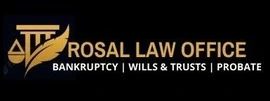Probation is a court-ordered period of supervision that allows individuals convicted of crimes to avoid or reduce jail time by adhering to certain conditions. However, violating probation in Florida can have serious legal consequences, potentially resulting in incarceration or extended probation terms. Understanding the implications and the legal processes involved is critical to navigating these situations effectively.
What is Probation in Florida?
In Florida, probation is considered an alternative to imprisonment. It offers individuals the chance to demonstrate their ability to reintegrate into society while following strict guidelines set by the court. These guidelines may include:
- Regular check-ins with a probation officer
- Attending counseling or rehabilitation programs
- Performing community service
- Paying fines, restitution, or court costs
- Abstaining from drugs or alcohol
- Avoiding further legal trouble
Failure to comply with any of these conditions constitutes a probation violation, which can trigger serious consequences.
Types of Probation Violations
Probation violations in Florida are categorized as either technical or substantive:
- Technical Violations: These occur when a probationer fails to adhere to the administrative rules of their probation, such as missing a meeting with their probation officer or failing to pay fines on time.
- Substantive Violations: These involve committing a new crime while on probation. Substantive violations are generally viewed more severely because they demonstrate a direct disregard for the law.
Consequences of Violating Probation
Violating probation in Florida can lead to significant penalties. The severity of the punishment depends on factors such as the nature of the violation, the individual’s criminal history, and the discretion of the court. Common consequences include:
1. Revocation of Probation: The court may revoke probation entirely, resulting in the imposition of the original jail or prison sentence.
2. Extended Probation: The judge may choose to extend the probation period, often with stricter conditions.
3. Incarceration: In some cases, the court may impose a jail or prison sentence for the probation violation.
4. Fines and Additional Penalties: Violators may face additional fines or be required to complete extra community service hours.
5. Modification of Probation Terms: The court may impose stricter conditions, such as house arrest or electronic monitoring.
The Probation Violation Process
When a probation officer suspects a violation, they may file an affidavit of violation with the court. This document outlines the alleged infraction and serves as the basis for legal proceedings. Here’s what typically happens next:
Warrant Issuance: Upon receiving the affidavit, the court may issue a warrant for the probationer’s arrest. In some cases, the probation officer may allow the individual to address the violation without immediate arrest.
Initial Hearing: After being arrested, the probationer attends an initial hearing, where the judge explains the alleged violation and determines whether the individual can be released pending a hearing.
Violation of Probation (VOP) Hearing: Unlike a criminal trial, a VOP hearing does not require proof beyond a reasonable doubt. Instead, the state must demonstrate a “preponderance of the evidence” that a violation occurred. The probationer can present evidence and witnesses in their defense.
Judge’s Decision: Based on the evidence presented, the judge decides whether a violation occurred and determines the appropriate penalty.
Factors Influencing the Outcome of Probation Violation
Several factors can influence the outcome of a probation violation case in Florida, including:
1. Nature of the Violation: Technical violations may result in less severe penalties compared to substantive violations.
2. Criminal History: A probationer with a prior criminal record or history of violations may face harsher consequences.
3. Circumstances of the Violation: If mitigating circumstances can explain the violation, such as a medical emergency or lack of transportation, the court may consider leniency.
4. Compliance History: A probationer who has otherwise complied with all terms may receive a more favorable outcome.
Why You Need Legal Representation?
Facing a probation violation can be overwhelming, especially when your freedom is at stake. A qualified probate lawyer in Palm Bay can provide essential guidance and representation throughout the process. They can:
- Review the details of your case
- Challenge the evidence presented by the state
- Present mitigating factors or alternative solutions to the court
- Advocate for leniency or the continuation of probation rather than incarceration
Steps to Take if You Violate Probation
If you suspect or know you have violated probation, taking proactive steps can improve your chances of a favorable outcome. Here’s what to do:
Contact an Attorney: Seek legal counsel immediately. An experienced probate lawyer can help you understand your rights and develop a defense strategy.
Be Honest with Your Probation Officer: Honesty and accountability may work in your favor. Communicate openly with your probation officer about any challenges you are facing.
Gather Evidence: Collect documentation or witnesses that can support your case, such as proof of payment for fines or medical records explaining missed appointments.
Comply with All Other Terms: Continue adhering to all other probation conditions to demonstrate your willingness to comply.
Preventing Future Violations for Probate
Avoiding probation violations is the best way to ensure a successful outcome. Here are some tips:
- Keep detailed records of all probation requirements, deadlines, and payments.
- Set reminders for meetings and court appearances.
- Communicate proactively with your probation officer about potential issues.
- Seek support for any underlying problems, such as substance abuse or financial challenges, through appropriate programs or counseling.
Conclusion
Violating probation in Florida is a serious matter that can lead to significant consequences, including incarceration, extended probation, and fines. Understanding the probation process, the potential outcomes, and the importance of legal representation can help you navigate this challenging situation effectively. If you find yourself facing a probation violation, consulting with a qualified probate lawyer in Palm Bay can make a critical difference in protecting your rights and achieving the best possible resolution.
By staying informed and proactive, you can better handle the complexities of Florida’s probation system and work toward a successful reintegration into society. For those needing probate services, finding experienced legal support is essential to securing a favorable outcome in any legal matter.





